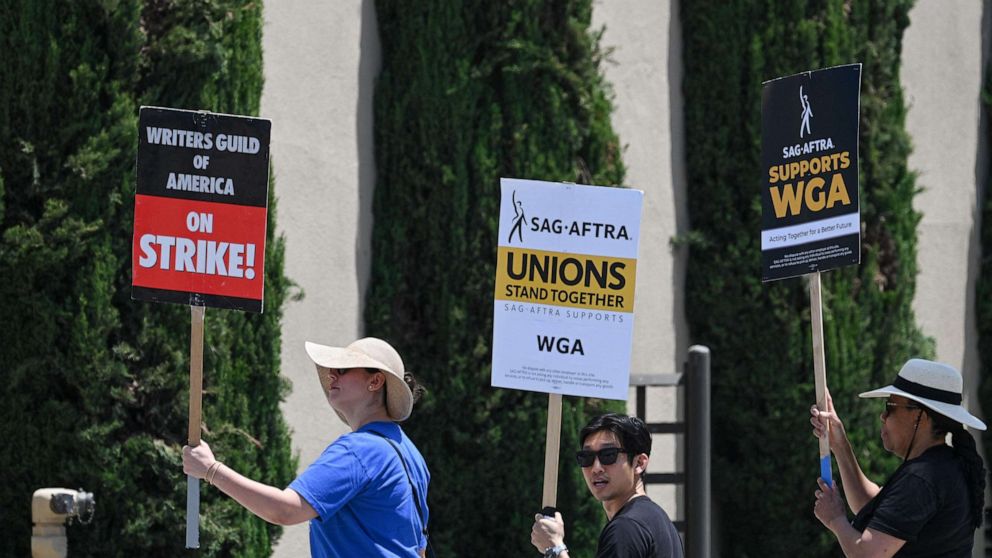Contract negotiations for actors in Hollywood unions are extended
In the ever-evolving world of Hollywood, contract negotiations play a crucial role in ensuring fair treatment and compensation for actors. These negotiations, which take place between actors and the various unions representing them, have recently been extended, sparking discussions and speculation within the industry.
The Screen Actors Guild-American Federation of Television and Radio Artists (SAG-AFTRA) is the primary union representing actors in Hollywood. This union negotiates contracts on behalf of its members, which include not only actors but also broadcasters, recording artists, and other media professionals. These contracts outline the terms and conditions under which actors work, including their compensation, working hours, and other important factors.
Contract negotiations are typically held every few years to address the changing needs and demands of the industry. However, due to various factors such as the COVID-19 pandemic and the rise of streaming platforms, negotiations for the latest contract have been extended beyond the usual timeframe.
One of the key issues being discussed in these negotiations is fair compensation for actors in the digital age. With the rapid growth of streaming platforms like Netflix, Amazon Prime, and Disney+, there has been a significant shift in how content is consumed. This has led to a surge in demand for original programming, resulting in increased opportunities for actors. However, there is a growing concern among actors that they are not being adequately compensated for their work on these platforms.
Another important aspect being addressed in the negotiations is the issue of working conditions. Actors often face long hours on set, with demanding schedules that can take a toll on their physical and mental well-being. Negotiations aim to establish guidelines and regulations that ensure actors are given sufficient breaks, reasonable working hours, and safe working environments.
Furthermore, diversity and inclusion have become crucial topics in recent years, and these negotiations are no exception. There is a push for increased representation of marginalized communities both in front of and behind the camera. Negotiations seek to address this issue by implementing measures that promote diversity and inclusivity in casting and hiring practices.
The COVID-19 pandemic has also had a significant impact on the entertainment industry, leading to the shutdown of productions and the implementation of strict safety protocols. Negotiations are therefore focusing on establishing guidelines and protocols to ensure the safety of actors on set, including regular testing, proper ventilation, and adherence to social distancing guidelines.
The extension of contract negotiations reflects the complexity and importance of these issues. Both actors and the unions representing them are invested in securing fair and equitable contracts that address the challenges and opportunities presented by the evolving landscape of the entertainment industry.
While negotiations can be lengthy and complex, they are crucial for ensuring that actors are protected and fairly compensated for their work. The outcome of these negotiations will not only shape the future of Hollywood but also set a precedent for other industries grappling with similar challenges.
In conclusion, contract negotiations for actors in Hollywood unions have been extended due to various factors such as the rise of streaming platforms, the COVID-19 pandemic, and the need for increased diversity and inclusion. These negotiations aim to address issues related to fair compensation, working conditions, diversity, and safety. The outcome of these negotiations will have a significant impact on the future of the entertainment industry and the lives of actors.



